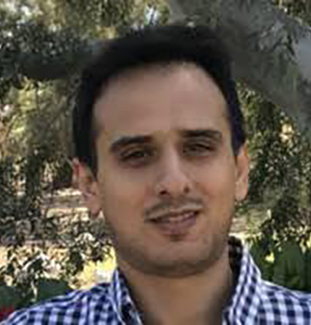
Title: Analytical Approaches for Dynamic Scheduling in Cloud Environments
Abstract: Scheduling is a critical component for applications running on a cluster of nodes. Cloud resource capacity may vary dynamically due to resource contention, complicating scheduling decisions, in addition to the traditional challenges of varying workload demand and data popularity. To address these issues, scheduler design decisions must be augmented with analytical techniques to automatically adapt to varying workload and system conditions. In this talk, we consider generic scheduling problems that arise in today’s cloud data center applications. In particular, we identify two popular scheduling scenarios and propose dynamic solutions for them.
Bio: Seyyed Ahmad Javadi is a researcher in the Computer Laboratory (CompAcctSys group) at the University of Cambridge, His primary research interest is computer systems including cloud computing and the Internet of Things (IoT). His current research involves addressing audit logging challenges in IoT environments, online social platforms, and cloud computing environments. Before joining CompAcctSys, Ahmad was studying at Stony Brook University where he was awarded his PhD in using analytical approaches for dynamic scheduling in cloud environments. He has also completed systems engineering and research internships at LinkedIn and Microsoft Research Redmond, respectively.

Title: Artificial intelligence and Blockchain for Beyond 5G Networks
Abstract: 5G wireless networks are currently being commercially deployed in several countries and the first phase of this deployment is concentrated on enhanced mobile broadband services. However, the next plan in Beyond 5G (B5G) networks is to provide the wireless connectivity for vertical industries such as V2X communications and factories. These industries with massive connections need ultra-reliable and very low latency wireless networks. Artificial intelligence and Blockchain are two important technologies empowering the wireless network to be intelligent, reliable and secure. They will be very essential in the wireless network since the resources are scare and have to be shared. Thus, in this talk, these two technologies and beyond 5G network services and requirements are first illustrated. Then, it is explained how these technologies enable B5G networks in terms of satisfying the required QoS of vertical industries.
Bio: Roghayeh Joda (M14) received the B.Sc. degree in electrical engineering from Sharif University of Technology, Tehran, Iran, in 1998, and the M.Sc. and Ph.D. degrees in electrical engineering from the University of Tehran, Tehran, Iran, in 2001 and 2012, respectively. During her Ph.D. studies, she has been a Visiting Scholar at the Polytechnic Institute of NYU, Brooklyn, NY, USA. She has worked as a Research Associate at University of Tehran, Tehran, Iran, from November 2012 to July 2013 and then as a Postdoctoral Fellow at University of Padova, Padova, Italy, from September 2013 to July 2014. She is currently the manager of 5G Plan and also a research assistant professor at Iran Telecommunication Research Center, Tehran, Iran.
Her current research interests include network information theory, source, channel and network coding, resource allocation, optimization, cognitive radio networks, self-organized networks, caching and machine learning algorithms, 5G networks and Internet of things.
Webpage: https://scholar.google.com/citations?user=FM_sSkcAAAAJ&hl=en

Title: Far-field Signal Processing for Smart Home Devices with Voice Interface
Abstract: The smart home technology market is growing at a fast rate during the last several years. Forecasts show the size of the global smart home market reaches around 53 billion U.S. dollars by 2023 which is around 50% more than the market size in 2019. Smart home security, smart home speakers, and Internet connected lights products are expected to be part of this progress. For now, however, smart home speakers are driving the market more strongly than the others. Speakers such as Amazon Echo, Google Home, and Apple HomePod are dominating the sales all over the world. The goal of this talk is to introduce a brief overview of typical signal processing methods used in smart speakers, with focus on far-field speech processing. In particular, we show how these devices supposed to deal with adverse signal conditions such noisy environments.
Bio: Nima Yousefian received the B.Sc. degree in computer engineering from the University of Tehran, Iran, in 2006, the M.S. degree in computer engineering from Iran University of Science and Technology, Tehran, Iran in 2009, and the Ph.D. degree in electrical engineering from the University of Texas at Dallas (UTD), Richardson, Texas, USA in 2013. During his Ph.D. studies, he was working on the development of microphone array noise-reduction algorithms that can improve speech intelligibility with application in hearing aids. From 2012 to 2015 he worked as a senior audio researcher in Cambridge Silicon Radio (Acquired by Qualcomm in 2015) in Michigan, USA. In September 2015 he joined Cirrus Logic Inc. in Mesa, Arizona, USA where his focus is research and development of signal processing algorithms with focus on smart home applications. His general research interests include statistical signal processing, speech enhancement, and microphone array signal processing.
Webpage: https://scholar.google.com/citations?user=jtEF_9kAAAAJ&hl=en

Title: Spiking Neural Network Implementation on Distributed Reconfigurable Cluster Architecture
Abstract: One of the promising applications that needs a highly scalable number of processors and parallel computing is a neural network and neuromorphic computation. Spiking Neural Network (SNN) acquired relevance due to the possibility to exploit in several applications. Taking advantages of the local learning capabilities makes SNN a promising method for hardware implementation in high throughput classification, pattern recognition, autonomous controls as well as neuroscience applications in understanding and modeling the biological brain. FPGA hardware implementations of Izhikevich and LIF (Leaky Integrated and Fire) model of neurons in a highly scalable SNN is presented in this work.
Bio: Mahyar Shahsavari is an associate researcher at circuit and system group, Imperial College London. His current research focus on cognitive computing and AI applications running on many-core reconfigurable architecture. He earned B.Sc and M.Sc in Electronics at Razi University and a M.Sc at Computer Engineering at Delft University of Technology, Netherlands. He got a PhD in computer science using memristive nano-device in Neural Network for unconventional cognitive computing at Lille University, France, 2016. After his Phd he got a Lecturer/researcher position in Computer Science at CRIStAL lab at Lille University. Due to transferring research harvest to the industry, he worked as a machine learning specialist and data scientist at ASML and TomTom Companies for two years.
Webpage: https://scholar.google.com/citations?hl=en&user=kmgnhBsAAAAJ